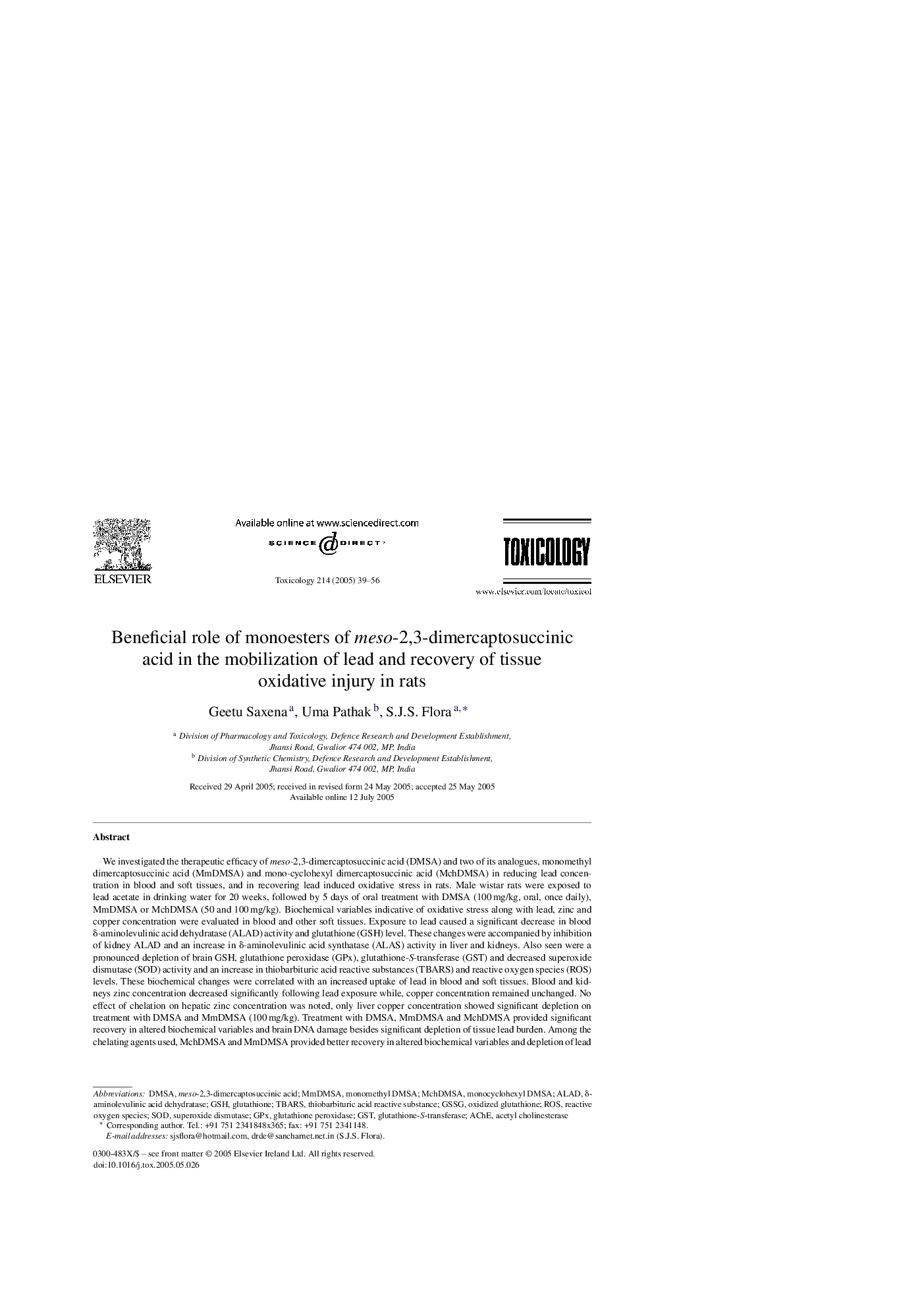| Article ID | Journal | Published Year | Pages | File Type |
|---|---|---|---|---|
| 9034569 | Toxicology | 2005 | 18 Pages |
Abstract
We investigated the therapeutic efficacy of meso-2,3-dimercaptosuccinic acid (DMSA) and two of its analogues, monomethyl dimercaptosuccinic acid (MmDMSA) and mono-cyclohexyl dimercaptosuccinic acid (MchDMSA) in reducing lead concentration in blood and soft tissues, and in recovering lead induced oxidative stress in rats. Male wistar rats were exposed to lead acetate in drinking water for 20 weeks, followed by 5 days of oral treatment with DMSA (100 mg/kg, oral, once daily), MmDMSA or MchDMSA (50 and 100 mg/kg). Biochemical variables indicative of oxidative stress along with lead, zinc and copper concentration were evaluated in blood and other soft tissues. Exposure to lead caused a significant decrease in blood δ-aminolevulinic acid dehydratase (ALAD) activity and glutathione (GSH) level. These changes were accompanied by inhibition of kidney ALAD and an increase in δ-aminolevulinic acid synthatase (ALAS) activity in liver and kidneys. Also seen were a pronounced depletion of brain GSH, glutathione peroxidase (GPx), glutathione-S-transferase (GST) and decreased superoxide dismutase (SOD) activity and an increase in thiobarbituric acid reactive substances (TBARS) and reactive oxygen species (ROS) levels. These biochemical changes were correlated with an increased uptake of lead in blood and soft tissues. Blood and kidneys zinc concentration decreased significantly following lead exposure while, copper concentration remained unchanged. No effect of chelation on hepatic zinc concentration was noted, only liver copper concentration showed significant depletion on treatment with DMSA and MmDMSA (100 mg/kg). Treatment with DMSA, MmDMSA and MchDMSA provided significant recovery in altered biochemical variables and brain DNA damage besides significant depletion of tissue lead burden. Among the chelating agents used, MchDMSA and MmDMSA provided better recovery in altered biochemical variables and depletion of lead concentration in tissues compared to DMSA. The above results suggest DMSA monoesters to be a better treatment option than DMSA in eliciting recovery to the altered biochemical variables and in the depletion of body lead burden.
Keywords
TBARSMonoestersDMSAGSSGGPXGSTGSHROSδ-aminolevulinic acid dehydrataseAChEacetyl cholinesterasemeso-2,3-dimercaptosuccinic acidOxidative stressChelation therapySODSuperoxide dismutaseLead poisoningALADthiobarbituric acid reactive substanceGlutathioneglutathione-S-transferaseoxidized glutathioneglutathione peroxidaseReactive oxygen species
Related Topics
Life Sciences
Environmental Science
Health, Toxicology and Mutagenesis
Authors
Geetu Saxena, Uma Pathak, S.J.S. Flora,
